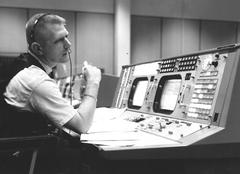Mission Statements
Misson statements. Hands up for anyone who loves their company mission statement.
Hands up for anyone who knows their company mission statement.
In many organizations, the mission statement is laid out by top level leadership, sometimes with input from departments or individuals. It tends to be a general and somewhat fluffy set of words that could apply to just about any organization. And that makes most mission statements forgettable.
That doesn't mean your maintenance team should not have a mission statement! Your job together with your team is to come up with a statement that reflects how you want to be seen and heard within the organization moving forward.
Why Your Team Needs a Mission Statement
One step towards improving your team's visibility is to have a 30-60 minute workshop to identify your key responsibilities and accountabilities. Don't work on your misison statement yet - just keep that list up on a whiteboard and make sure that it accurately reflects the team's purpose. As you do your work, feel free to update the whiteboard by adding, consolidating, or removing items. Within 1-2 weeks the lists will be boiled down to a few items that will represent your team's "reason for being" - that's the core of your mission.
Maintenance engineering can be extremely demanding because your work impacts not only future production but also every unit that has ever been produced and sold. You could be working on tasks as varied as reducing manufacturing cost, adding a new feature, or making a fix that can be applied in the field. In rare cases your team will have to make a call to stop production or even recall a product.
How do those high level tasks fit into your company's mission statement? They probably don't - and that's why you and the team need to have one that feels authentic and relevant for you, while still supporting the overall company mission.
Mission statements that are authentic are very hard to come by, so why not take inspiration from an existing statement and modify it (if needed) to be relevant for your team?
Two of my personal favorites are:
Tough and competent
Failure is not an option
—Gene Kranz (Apollo Flight Director)
Almost every engineer has at one time or another watched Apollo 13 and has reflected on their personal work. If you haven't watched it recently, please make some time to do so, or look up any documentary on the Apollo program. Maybe bring it up in your next team meeting and ask for input on an engineering heavy documentary that you can all watch.
Then spend 30 minutes or so on a team reflection to gather input on what is the most relevant thing the team can do in the next 2-4 weeks that makes them feel proud of what they are doing.
... but we DID fail - now what?
I just said that Failure is not an option is one of my guiding star statements. The LEGO Group has a similar one - Only the best is good enough.
As much as I admire these statements, they come with a downside. They may set up the organization to believe that failures will not happen, or support a culture of not releasing a product until it's perfect and complete.
Of course these are relevant statements for space flight, where cost and quality are in step with each other. In consumer and commercial goods, you will have failures in design, production, software, and process - and they will almost always be coupled with schedule and cost pressure or incorrect assumptions.
Your job as part of the maintenance team is to be prepared to address these failures, and to do so professionally. That means making sure that:
You value facts over guessing
You fix the root cause and not the symptom
You communicate clearly in a timely fashion
This is where Tough and Competent comes in. You and the team need to be competent in gathering facts and getting to root cause. Then you need to be tough in challenging assumptions and reporting your findings and recommendations.
What you and your team discover, how you solve the problem, and the way you communicate it up the chain will have a huge impact on your team's visibility and credibility. Never waste the opportunity.
Managing engineering failures that get escalated to senior leadership is a real challenge, and I'll review personal stories of failure and success in future posts.
